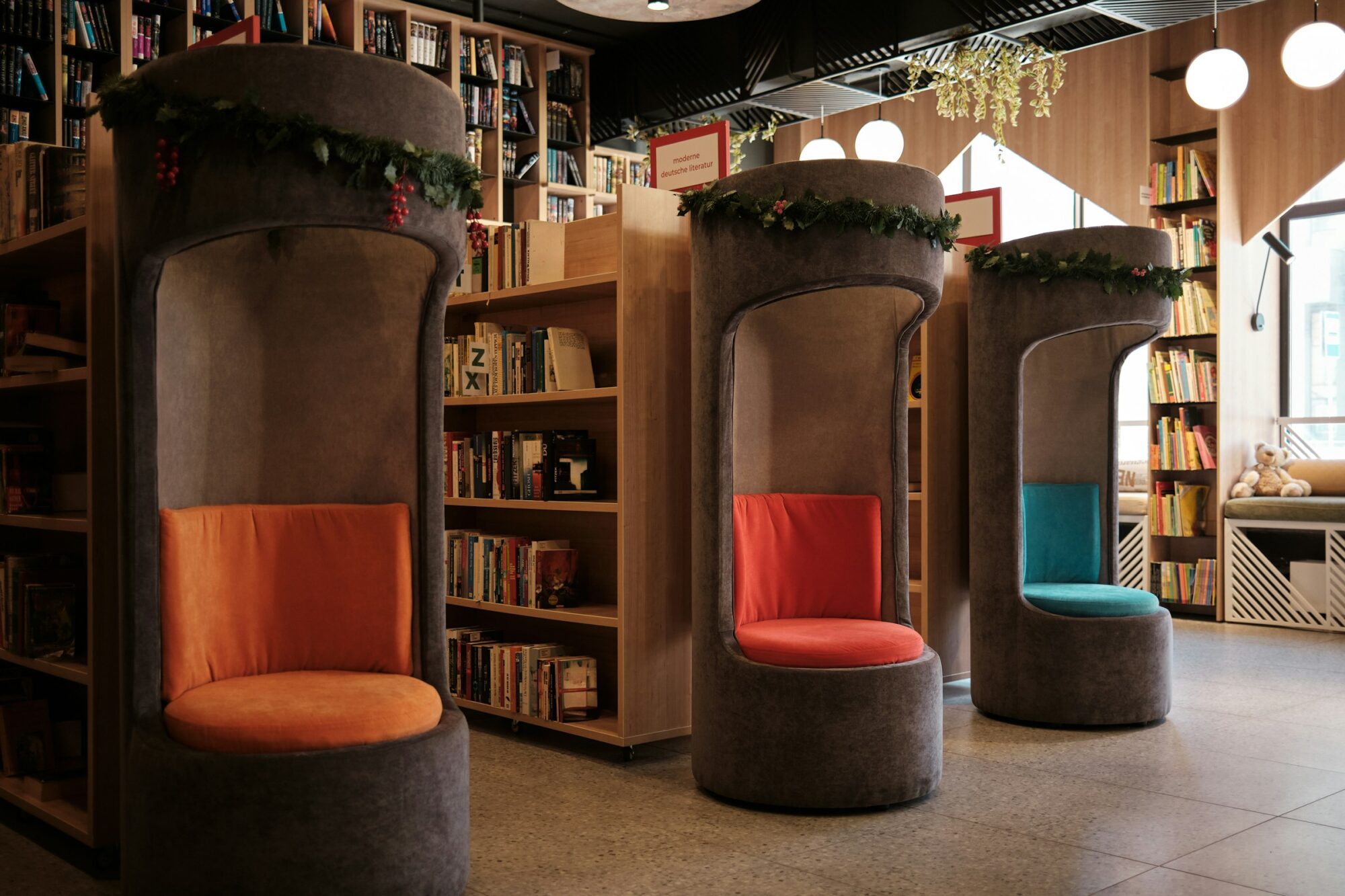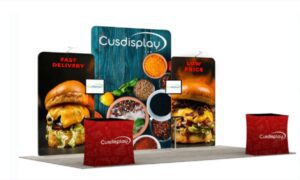Trade shows are noisy. Not just loud in sound, but visually overwhelming. In that chaos, your custom trade show booth needs to grab someone’s eyes—and their curiosity—in just five seconds. It’s not about being flashy. It’s about being clear, clever, and on-brand.
Why Custom Booths Matter in Today’s Attention Economy
More Than a Display: It’s Brand Architecture
A custom trade show booth is an physical representation of the your company’s essence. Every material, color, and curve is selected not by chance but by intent—to communicate who you are in one glance.
The Real ROI of Custom Design
- Increased Brand Recall
Unique designs leave a visual imprint that makes visitors remember your booth long after the event is over. - Purpose-Driven Messaging
Customization lets your booth tell your exact brand story—no generic, one-size-fits-all setups. - Boosted Engagement & Leads
When your booth is tailored to your target audience, people are more likely to stop, engage, and convert.
Storytelling Through Booth Design
The Entrance: The Visual Hook
Think of your booth’s entrance as the cover of a bestselling novel. Visitors should “read” something compelling at a glance—whether it’s a bold question, clean branding, or a dynamic screen that invites them in.
Layout Design: Mapping the Journey
- Start with Curiosity
The outer edge should offer something bold, like a product teaser or touchpoint, to make people pause. - Move with Intent
Guide visitors through clear zones: a display area, a demo section, and a one-on-one conversation space. - End with a Purpose
Don’t let the experience fizzle. End the walk-through at a sign-up station, meeting area, or call-to-action.
Branding That Lives and Breathes
More Than Logos: Creating an Immersive Brand Space
A strong custom trade show booth goes beyond placing your logo on the banner. It incorporates every element—texture, shape, tone—to create a three-dimensional version of your brand voice.
Key Branding Elements to Weave Into Your Booth
- Textures That Reflect Brand Identity
Use raw wood for an earthy, sustainable vibe or sleek metals for a high-tech impression. - Shapes That Speak Values
Rounded edges imply friendliness; sharp angles suggest innovation or boldness. - Multimedia That Builds Trust
Use videos, customer testimonials, or motion graphics to provide social proof and credibility.
Winning Attention in a Noisy Environment
Understand Trade Show Psychology
Attendees are overwhelmed—visually, mentally, and physically. They need something that makes them feel, not just see.
- Motion Catches the Eye
Incorporate looping animations, kinetic displays, and live action to the stop passersby. - Faces and Human Elements
Use relatable images or real staff with friendly faces to create an emotional connection. - Bold Questions Spark Interest
Asking provocative or benefit-driven questions on banners can draw people into a conversation.
Designing for Engagement: Not Just Decoration
Hands-On Interaction Turns Browsers into Buyers
- Let Them Touch
Provide samples, models, or materials people can hold—it deepens memory. - Encourage Trial
Interactive demos or software trials invite visitors to spend more time in your space. - Facilitate Conversation
Design comfortable seating or standing zones where genuine discussions can happen naturally.
Gamify for Fun, But Tie It to Your Brand
- Contests with a Purpose
Trivia about your product or brand can entertain while educating at the same time. - Giveaways That Reinforce Value
Branded items should be thoughtful—avoid cheap pens; offer USBs, quality bags, or smart swag aligned with your identity.
Eco-Friendly Custom Booths: Branding with a Conscience
Sustainability isn’t optional anymore—it’s a branding advantage.
- Use Renewable Materials
Bamboo panels, recycled aluminum, or reclaimed wood not only look good but also tell a story of responsibility. - Modular, Reusable Booths
Invest in parts you can reconfigure for future events—great for saving costs and the planet. - Promote Your Eco-Efforts Onsite
Display your sustainability values through signage and visual cues so visitors notice your commitment.
Top Mistakes in Booth Design and How to Avoid Them
- Overwhelming Text
Avoid walls of copy—use simple phrases, action words, and visuals that explain more than words can. - Weak or Missing CTA
A booth without a goal is the lost opportunity. Always lead visitors to acting whether it’s booking a demo or scanning a QR code. - Bad Lighting Choices
Dark, uneven, or unplanned lighting can make even the best booth feel uninviting and unprofessional.
Measure What Matters: Tracking Booth ROI
How to Know if Your Booth Was a Success
- Lead Volume
Count how many qualified contacts you gained during the event. - Dwell Time
Use staff observations or motion tracking to see how long people spent inside your booth.
Why Custom Booths Are a Smart Investment
- Tailored to Your Audience
Custom booths can be designed to match the behavior, preferences, and expectations of your ideal customer. - Built for Versatility
Many custom designs are modular, meaning they can be reused at various venues with minimal changes. - Reflects Professionalism
A generic booth may save money upfront, but a custom one shows your company is serious, established, and memorable.
Conclusion: Design That Tells Before You Speak
Trade shows are competitive arenas where attention is currency. In that split second when someone walks past your booth, the design alone decides whether they keep walking or come in.
A custom trade show booth gives you more than an edge. It gives you a voice when nobody is listening, yet. So don’t just show up—stand out. Tell a story that people don’t just hear, but feel.
FAQs
1. What makes a booth “custom”?
A custom trade show booth is the unique designed for your business from the ground up. It reflects you branding, message, and marketing goals in a way that no rental setup can.
2. How much does a custom booth typically cost?
Prices vary widely. Smaller custom booths may start around $5,000, while larger, more complex designs can range from $20,000 to $100,000, depending on materials, technology, and size.
3. Can a custom booth be used for multiple events?
Yes. Most custom booths are designed with modular components that can be adapted to different layouts, venues, and booth sizes.
4. How long does it take to build a custom booth?
It usually takes 6 to 12 weeks from concept to delivery. Early planning is crucial, especially for high-profile expos or international trade shows.





























